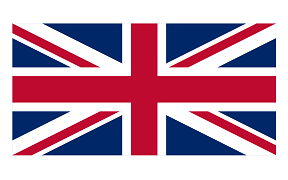In each of Canada's ten provinces and three territories, legislation is used to some degree by governments to establish, govern, recognize, or ensure the quality of postsecondary educational programming.
For public universities in most provinces, provincial legislation has established the authority of universities to grant degrees and other credentials, to call themselves “universities,” and to govern themselves through a board of governors and, most often, a senate. Each public university is autonomous in academic matters, including the determination of its own quality-assurance policies and procedures. Universities have the power to set academic, admission, and graduation policies and standards, appoint staff, and undertake academic planning. In some provinces, councils or other government-appointed bodies have been established with responsibility for planning and coordinating the development of the postsecondary system, in consultation with the institutions. These bodies, or the minister responsible for postsecondary education, may be responsible for approving new and significantly revised programs.
Private universities and out-of-province institutions are permitted to offer degrees only after their applications have undergone a quality-assessment process undertaken by provincial government authorities, and approved degrees may continue to be monitored. The review may assess both academic rigour and institutional soundness.
The degree of autonomy and responsibility of public colleges and institutes varies considerably across the country. In some jurisdictions, colleges and institutes are largely autonomous, with the government determining which credentials they can grant and/or approving their mandates, while the college boards of governors manage their programs and quality assurance. In others, ministers or appointed external councils have responsibility for establishing guidelines for program evaluation and appointing review teams or for approving all programs and authorizing their delivery.
Private colleges and institutes, which operate under a wide variety of names, are registered or licensed in most jurisdictions. Depending on the jurisdiction, this may imply consumer protection for students, monitoring of the provision of programs, limits on advertising claims, or the imposition of standards for curriculum and instructor qualifications. Colleges may also offer non-registered programs. In some jurisdictions, private colleges that offer language training programs, programs of less than 40 hours duration, programs that cost less than $1,000, or professional development and single-skill training programs, are not registered or monitored.
Apprenticeship training combines workplace training and class instruction. Provincial and territorial legislation governing apprenticeship training may assign the responsibility for quality assurance to a government department, an industry-led agency, and/or trade-specific advisory committees. These groups may establish standards and content for the in-class portion provided by colleges, monitor training quality, and oversee other aspects of quality assurance. Program standards are set using national or provincial occupation standards. The Interprovincial Standards Red Seal Program promotes and facilitates the standardization of provincial and territorial apprenticeship training and certification; it also provides greater employment mobility throughout Canada. A provincial Certificate of Trades Qualification bearing the Red Seal provides training recognition throughout Canada; for employers, it is an assurance of quality training and certification to nationally recognized standards.
 English
English Français
Français 日本語
日本語 中文
中文 한국어
한국어 Русский
Русский










